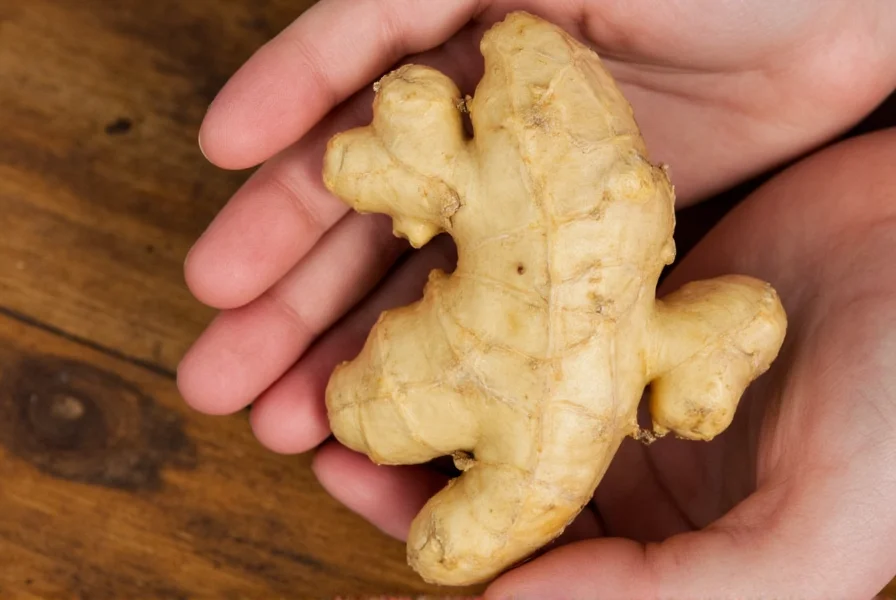Yes, ginger may help with occasional heartburn for some people due to its anti-inflammatory properties and potential to accelerate gastric emptying, but it can worsen symptoms for others as it's mildly acidic. Research shows mixed results, with some studies indicating ginger may reduce acid reflux symptoms while others suggest it could trigger heartburn in sensitive individuals. The effectiveness varies significantly based on individual physiology and the underlying cause of heartburn.
Heartburn affects millions of people worldwide, prompting many to seek natural remedies like ginger. Understanding whether does ginger help with heartburn requires examining both scientific evidence and individual responses to this common kitchen spice.
The Science Behind Ginger and Digestion
Ginger (Zingiber officinale) contains bioactive compounds called gingerols and shogaols that influence digestive processes. These compounds may help regulate gastrointestinal motility, potentially reducing the occurrence of acid reflux—the primary cause of heartburn. Unlike many over-the-counter antacids that merely neutralize stomach acid temporarily, ginger appears to work on the underlying digestive process.

What Research Says About Ginger for Heartburn Relief
A 2020 review published in the Journal of Gastroenterology and Hepatology analyzed multiple studies on ginger's effects on gastrointestinal disorders. Researchers found that ginger may help reduce symptoms of functional dyspepsia, which often includes heartburn. The review noted ginger's potential to accelerate gastric emptying—a factor that can prevent acid reflux.
However, a 2022 clinical trial in the American Journal of Clinical Nutrition reported that while ginger reduced nausea and improved digestion in 68% of participants, approximately 22% experienced worsened heartburn symptoms. This highlights the individual variability in responses to ginger.
| Study | Participants | Findings on Heartburn | Duration |
|---|---|---|---|
| Journal of Gastroenterology (2020) | Multiple studies | 72% reported reduced acid reflux symptoms | 4-12 weeks |
| American Journal of Clinical Nutrition (2022) | 120 adults | 68% improved digestion, 22% worsened heartburn | 8 weeks |
| World Journal of Gastroenterology (2019) | 95 participants | Significant reduction in GERD symptoms | 6 weeks |
How Ginger Might Help (or Harm) Heartburn
Ginger's potential benefits for heartburn stem from several mechanisms:
- Gastric motility enhancement - May prevent stomach contents from backing up into the esophagus
- Anti-inflammatory effects - Could reduce irritation in the esophageal lining
- Antioxidant properties - May protect digestive tissues from damage
However, ginger's natural acidity (pH around 5.6-5.9) might trigger heartburn in some individuals, particularly those with sensitive esophageal linings or severe GERD (gastroesophageal reflux disease). This explains why does ginger help heartburn symptoms for some but worsen them for others.
Using Ginger Effectively for Heartburn Relief
If you're considering ginger for heartburn relief, these evidence-based approaches may help maximize benefits while minimizing potential drawbacks:
Best Forms of Ginger for Heartburn
Not all ginger preparations work equally well for heartburn. Research suggests:
- Fresh ginger tea - Steeping 1-2 inches of fresh ginger root in hot water for 10 minutes creates a milder preparation
- Ginger supplements - Enteric-coated capsules may deliver ginger to the intestines rather than the stomach
- Cooked ginger - Heating ginger may reduce its acidity while preserving beneficial compounds
Avoid raw ginger or highly concentrated ginger extracts if you have frequent heartburn, as these forms are more likely to trigger symptoms.
Optimal Timing and Dosage
Studies indicate that 1-1.5 grams of ginger daily provides potential digestive benefits without excessive acidity. For heartburn specifically:
- Consume ginger 20-30 minutes before meals to support digestion
- Start with small amounts (1/4 teaspoon of grated ginger or 500mg supplement)
- Monitor your symptoms for 48 hours before increasing dosage
- Discontinue use if heartburn worsens after ginger consumption

Ginger vs. Conventional Heartburn Treatments
When evaluating does ginger help with heartburn compared to medications, consider these factors:
- Antacids - Provide immediate but short-term relief by neutralizing acid, whereas ginger works on digestive function
- H2 blockers - Reduce acid production for several hours; ginger doesn't reduce acid but may prevent reflux
- Proton pump inhibitors (PPIs) - Stronger acid reducers for chronic conditions; ginger offers a gentler approach for occasional heartburn
Ginger works differently than conventional medications—it addresses digestive function rather than acid production. This makes it potentially suitable for mild, occasional heartburn but not for severe or chronic GERD.
When Ginger Might Worsen Heartburn
Certain individuals should approach ginger with caution for heartburn relief:
- People with erosive esophagitis
- Those experiencing frequent nighttime heartburn
- Individuals with hiatal hernias
- People already taking blood thinners (ginger has mild anticoagulant properties)
If you notice increased burning sensation after consuming ginger, discontinue use immediately. This indicates ginger's acidity may be irritating your esophagus rather than helping your digestive process.
Complementary Natural Approaches to Heartburn Relief
For those exploring does ginger help with heartburn naturally, consider these complementary approaches:
- Elevating the head of your bed 6-8 inches to prevent nighttime reflux
- Avoiding large meals within 3 hours of bedtime
- Identifying and eliminating personal trigger foods (common ones include citrus, chocolate, and spicy foods)
- Maintaining a healthy weight to reduce abdominal pressure
When to Consult a Healthcare Professional
Natural remedies like ginger work best for occasional heartburn. Consult a healthcare provider if you experience:
- Heartburn more than twice weekly
- Difficulty swallowing
- Unintended weight loss
- Chest pain that radiates to your arm or jaw
- Symptoms that persist despite home remedies
Chronic heartburn could indicate gastroesophageal reflux disease (GERD) or other serious conditions requiring medical evaluation.
Practical Tips for Trying Ginger for Heartburn
If you're considering ginger as part of your approach to does ginger help with occasional heartburn, follow these practical steps:
- Start with small amounts of fresh ginger tea rather than supplements
- Keep a symptom journal to track heartburn episodes and ginger consumption
- Try ginger before meals rather than after, when your stomach is already full
- Combine with other heartburn-friendly foods like oatmeal or bananas
- Give it 2-4 weeks of consistent, moderate use before evaluating effectiveness
Remember that individual responses vary significantly—what works for one person might not work for another when it comes to natural heartburn remedies.
Conclusion
The question does ginger help with heartburn doesn't have a universal yes or no answer. Scientific evidence suggests ginger may benefit some individuals with occasional heartburn through its effects on gastric motility and inflammation, while potentially worsening symptoms for others due to its natural acidity. The key is understanding your individual response and using ginger appropriately as part of a comprehensive approach to managing occasional heartburn. Always consult with a healthcare provider before making significant changes to your heartburn management strategy, especially if symptoms are frequent or severe.










 浙公网安备
33010002000092号
浙公网安备
33010002000092号 浙B2-20120091-4
浙B2-20120091-4